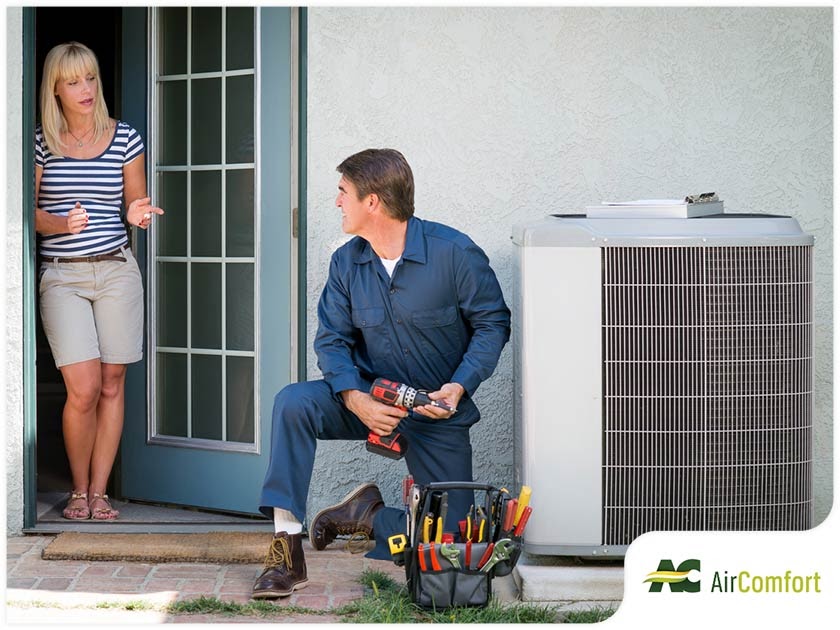Upgrading your HVAC system is a great way to boost your home’s indoor comfort. If you feel your current equipment no longer reaches the desired temperatures due to old age or recurring issues, replacing it with a newer, more efficient model makes sense. However, just like any other important investment, you have to consider certain things before making a decision. After all, an HVAC upgrade isn’t as simple as buying the latest model of car or laptop computer.

Today Air Comfort Inc., your local HVAC contractor, lists some questions to ask yourself before upgrading your heating and cooling system.
Your HVAC system is engineered to last. However, since it also has a set lifespan like any other equipment, it requires periodic maintenance to ensure optimal performance. Once it reaches the end of its service life, you won’t want to use it any longer, because it will function ineffectively and inefficiently. In addition to seeing a spike in energy consumption, heating or cooling equipment that’s past its prime can affect the safety of your family and the quality of life inside your home.
“How do I choose an HVAC system?”
Your choice of a heating and cooling system depends on the location, size, climate and expectations of the occupants inside your home. It features multiple components, but you can find different HVAC types, including standard split, packaged and geothermal systems. Thus, it pays to research them so you can weigh your options. It also helps to check out new HVAC trends, from zoning systems to units equipped with smart features such as mobile app-controlled air conditioners or thermostats.
“Does it feel uncomfortable In the summer or winter?”
Your HVAC system functions to keep your indoor spaces comfortable, but if most of the areas of your home aren’t comfortable, then it might be time to replace it. Before you make a decision, be sure to check the following:
Your Home’s Insulation – Even with proper installation, your new heating or air conditioning equipment will be rendered useless if your home has issues with insulation. It’s like pouring water in a bucket with a hole in it. You’ll have to check your exterior walls, attic and openings—windows, doors and skylights—to see if they’re properly insulated. Essentially, there shouldn’t be heat leaks or conductive surfaces such as single-paned window glazing.
Maximum Output – It’s not a good idea to set your HVAC system to maximum output even if your home is properly insulated and your HVAC system undergoes regular maintenance. If you feel the need to do this all the time, the equipment might not be the right size for your home. Turn to your local heating and air conditioning service provider to ensure proper sizing.
“What size of HVAC system best fits my home?”
In addition to uneven indoor comfort, oversized and undersized HVAC units may wear faster, leading to possible premature failure. So, in determining the right equipment size, certified technicians consider your home’s square footage and your local climate. A 2,400-square-foot residence needs an HVAC system that produces 72,000 to 144,000 BTU (British thermal units), or the amount of conditioned air it can produce in an hour.
When you choose an HVAC system, you shouldn’t just focus on the efficiency of the new unit. Proper installation is also key in making the most of your investment. These two aspects are vital for minimizing energy consumption and reducing potential maintenance costs. Of course, you need a reliable contractor like Air Comfort who can help you choose the best HVAC upgrade based on your home’s comfort requirements.
Working with us means you’ll be dealing with a world-class team that has the in-house experience and expertise to carry out heating and air conditioning repair, replacement and maintenance. Get started by calling (409) 833-5665 or filling out our contact form to request service or schedule an appointment.